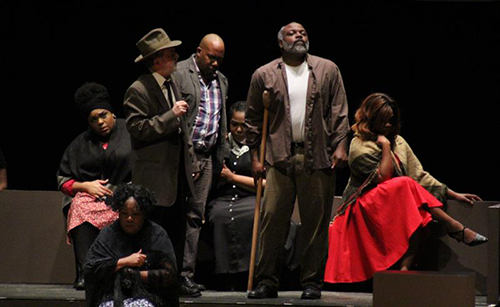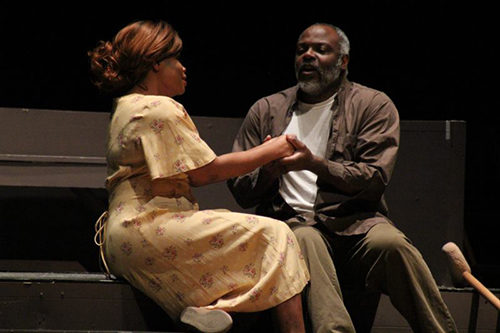by Robert Rollin

Susan Davenny Wyner’s conducting complemented the theatrics with an excellent musical flow, and kept singers and instrumentalists together. In keeping with the Gershwins’ sophisticated intentions, the chorus, well prepared by Jon Simsic, skillfully combined with and supported the soloists.

Baritone Brian Keith Johnson brought a strong voice, sardonic energy, and vigor to the role of Crown. His stature and physical presence seemed just right for a strong and brutal stevedore used to having his way with women.





Photos courtesy of Jamie Marshall, Stambaugh Auditorium.
Published on ClevelandClassical.com March 19, 2018.
Click here for a printable copy of this article



